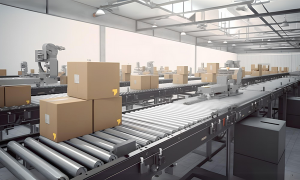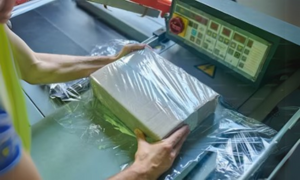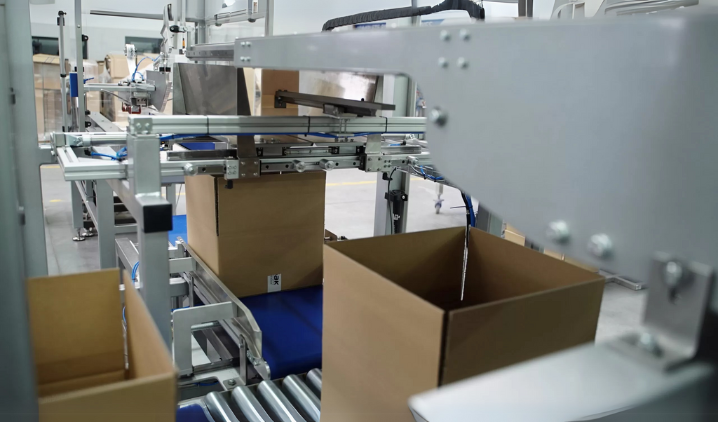Subtotal $0.00
In today’s dynamic and fast-paced manufacturing landscape, the efficiency and reliability of packaging machinery play a critical role in ensuring that products are packaged securely, effectively, and at scale. With a diverse range of machinery tailored for specific functions, selecting the appropriate equipment based on product type, industry demands, and packaging requirements is essential for achieving optimal performance. This deep understanding of packaging machinery and its varied applications allows manufacturers to maintain consistency and elevate operational efficiency. In this exploration, we will delve into the most commonly used packaging machines, including filling machines, sealing machines, labeling machines, and capping machines, while highlighting the unique features and industries they cater to.


1.Granule Filling Machines
What Are Granule Filling Machines?
Granule filling machines are specialized pieces of equipment designed to pour granulated products, such as rice, sugar, coffee, salt, and pet food, into packaging containers and pouches with precision. These machines are highly adaptable, capable of accommodating various product types, and easily adjustable for different granule sizes and weights.
Applications:
- Food Industry:Perfectly suited for packaging grains, cereals, spices, and confections, ensuring freshness and quality.
- Pharmaceuticals:Essential for accurately filling capsules or packets with granulated powdered medications, promoting safety and compliance.
- Agriculture:Critical in packaging fertilizers or seeds, facilitating the effective distribution of agricultural products.
Types of Granule Filling Machines:
- Volumetric Filling Machines:Efficiently measure granules by volume, filling containers with the desired quantity for uniformity.
- Weighing Filling Machines: Precisely measure granules by weight, ensuring accuracy and consistency in every package, a crucial factor in maintaining product quality.
2.Liquid Filling Machines
What Are Liquid Filling Machines?
Engineered for precision, liquid filling machines are adept at filling containers with a wide variety of liquids—from clear waters and tempting juices to viscous oils, sauces, and cosmetic formulations. These sophisticated machines are designed to minimize spills and waste, guaranteeing a clean, efficient filling process.
Applications:
- Beverage Industry:Streamlining the filling of bottles and cartons with various liquids like refreshing sodas, nutrient-rich juices, and bottled water, enhancing consumer experience.
- Pharmaceuticals:Vital for filling syrupy tinctures and medicinal liquids into bottles, ensuring dosing accuracy and safety.
- Cosmetics and Toiletries:Essential for filling luxurious lotions, nourishing oils, invigorating shampoos, and fragrant perfumes into sleek containers, maintaining product integrity.
3.Powder Filling Machines
What are Powder Filling Machines?
Powder filling machines are specially designed to fill containers with powdered products such as flour, protein powder, spices, and baby formula. These machines guarantee uniform filling and often come equipped with advanced anti-clogging systems, promoting seamless operations.
Applications:
- Food Industry:Vital for packaging aromatic spices, essential seasonings, and convenient powdered drink mixes, delivering consistent quality to consumers.
- Pharmaceuticals:Crucial for accurately filling capsules or containers with powdered medications or dietary supplements, ensuring safety and compliance with health regulations.
- Cosmetics:Used to package various powders intended for makeup, face powders, and talcs, enhancing the appeal and usability of cosmetic products.
Types of Powder Filling Machines:
- Auger Fillers:Feature a rotating screw mechanism to measure and fill powders into containers, providing precision and reliability.
- Volumetric Fillers: Fill containers by volume, ideal for maintaining consistency across powder sizes and types.
- Weighing Fillers:Measure powder by weight, assuring accuracy in every package and promoting quality assurance.
4.Paste Filling Machines
What Are Paste Filling Machines?
Paste filling machines are expertly designed for handling products with a thick and viscous consistency, such as creams, gels, pastes, and adhesives. These machines ensure smooth and consistent dispensing into containers, meeting the challenges of viscous materials.
Applications:
- Cosmetics and Toiletries: Perfect for filling tubes or jars with rich creams, rejuvenating lotions, and hydrating gels that appeal to consumers.
- Food Industry:Essential for packaging thicker foods like flavourful tomato paste, zesty mustard, and creamy peanut butter, preserving taste and texture.
- Pharmaceuticals:Ideal for filling ointments or medicated creams into containers, ensuring effective delivery of healthcare products.
Types of Paste Filling Machines:
- Piston Paste Fillers:Designed for high-viscosity pastes, these machines utilize pistons for accurate dispensing into containers, providing control and efficiency.
- Gear Pumps:Employ rotating gears to pump paste into containers, offering precision and consistency throughout the filling process.
5.Sealing Machines
What Are Sealing Machines?
Sealing machines are indispensable in the packaging process, ensuring that filled containers are securely sealed to preserve product freshness and protect them from contamination during storage and distribution. Their role is vital across a multitude of industries, maintaining product integrity and extending shelf life.
Applications:
- Food Industry:Facilitate the airtight sealing of bags of chips, snack items, and vacuum-packed products, ensuring they retain their crunch and flavor.
- Pharmaceuticals: Crucial for sealing medicine bottles or sachets, preventing contamination and maintaining product efficacy.
- Cosmetics: Essential for securely sealing cosmetic containers, such as jars of luxurious lotion, to uphold quality and safety.
Types of Sealing Machines:
- Heat Sealers: Utilize heat to bond plastic or foil materials together, creating strong and reliable seals that preserve product integrity.
- Vacuum Sealers: Remove air from containers before sealing, ideal for preserving food and other perishable goods, enhancing longevity.
- Induction Sealers:Create airtight seals on bottles or jars by melting a layer of foil under heat, ensuring robustness and sterility.
6.Labeling Machines
What Are Labeling Machines?
Capping machines play a pivotal role in packaging lines, designed specifically to apply and tighten caps or lids on various containers. This crucial step not only secures the product contents but also prevents spills and ensures that the package is tamper-proof, thereby preserving quality and safety.
Applications:
- Beverages:Efficiently capping an array of bottle types for sodas, juices, and alcoholic drinks, maintaining the freshness and integrity of the liquid inside.
- Pharmaceuticals:Safeguarding bottles of liquid medicines, tinctures, or syrups by securely sealing them, thereby minimizing the risk of contamination or spoilage.
- Cosmetics:Closing bottles of lotions, shampoos, and oils with precision, ensuring that the products remain effective and appealing to customers.
Types of Capping Machines:
- Screw Capping Machines:Designed to tightly secure screw-on caps with pinpoint precision, ensuring each container is perfectly sealed.
- Press-on Capping Machines:Employ gentle but firm pressure to affix lids onto jars and containers, providing a reliable closure that is easy for consumers to open.
- Spindle Capping Machines:Commonly utilized for their consistent capping ability across bottles of various sizes, ensuring uniformity in packaging.
7.Capping Machines
What Are Capping Machines?
Labeling machines play a crucial role in the packaging process by applying adhesive labels to products or packing, providing essential information such as product name, ingredients, usage instructions, and branding elements. These machines enhance product presentation and compliance with labeling regulations.
Applications:
- Food and Beverage: Labeling bottles, cans, and pouches with essential information such as ingredients, nutritional values, and vibrant branding to attract consumers. –
- Pharmaceuticals:Ensuring that medicinal products are meticulously labeled with clear usage instructions, dosage information, and necessary warning signs to guarantee consumer safety. Cosmetics: Effectively labeling beauty products, including skincare items and makeup, to communicate benefits and features that resonate with potential buyers.
Types of Labeling Machines:
- Self-Adhesive Labelers:Perfectly suited for applying vibrant stickers to a variety of containers such as bottles, jars, and cans, ensuring a seamless and appealing presentation.
- Sleeve Labelers:Expertly apply full-body labels that wrap around containers, offering a striking visual impact, often favored in the beverage industry for their sleek appearance.
- Shrink Sleeve Labelers:Employ heat to snugly shrink a label around the product, creating a tight and secure fit that enhances durability and aesthetics.
Conclusion
The packaging machinery industry is a dynamic field that encompasses a diverse array of machines, each meticulously designed for specific purposes that cater to various sectors. Whether handling fine powders, viscous liquids, or pastes, or requiring sophisticated sealing, labeling, or capping solutions, a thorough understanding of the types of packaging machines and their applications can significantly enhance operational efficiency.
Selecting the appropriate packaging equipment is vital for optimizing production processes, complying with stringent regulatory standards, and ultimately delivering superior quality products to discerning consumers. By strategically investing in the right packaging machinery, manufacturers can boost productivity, minimize waste, and significantly enhance their profitability.


Comments are closed